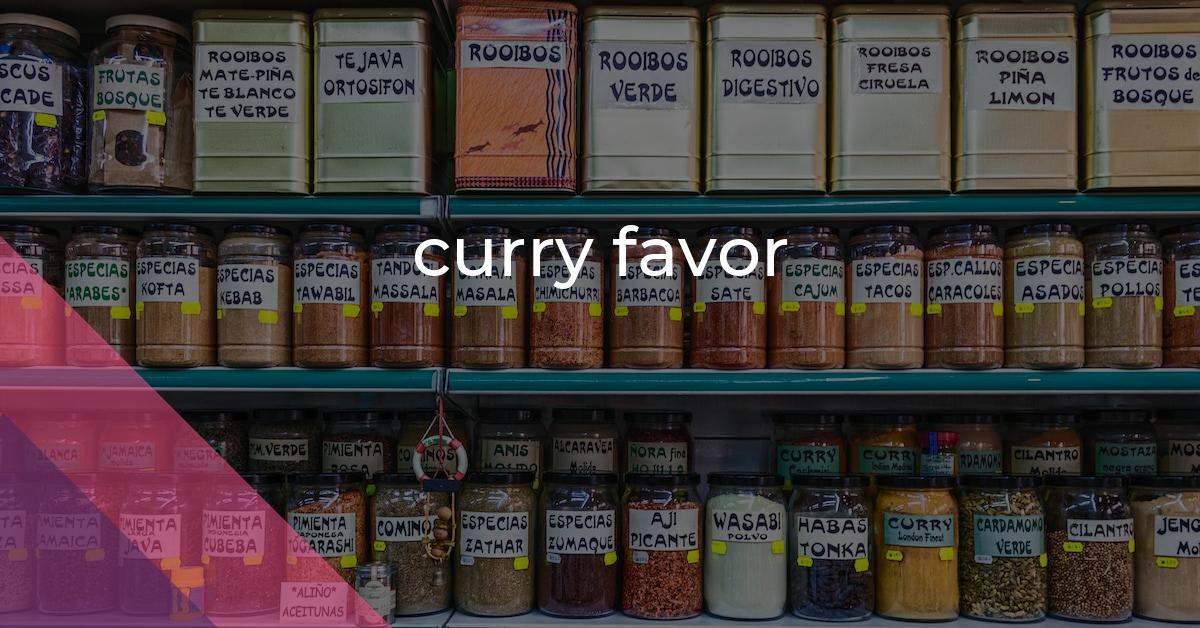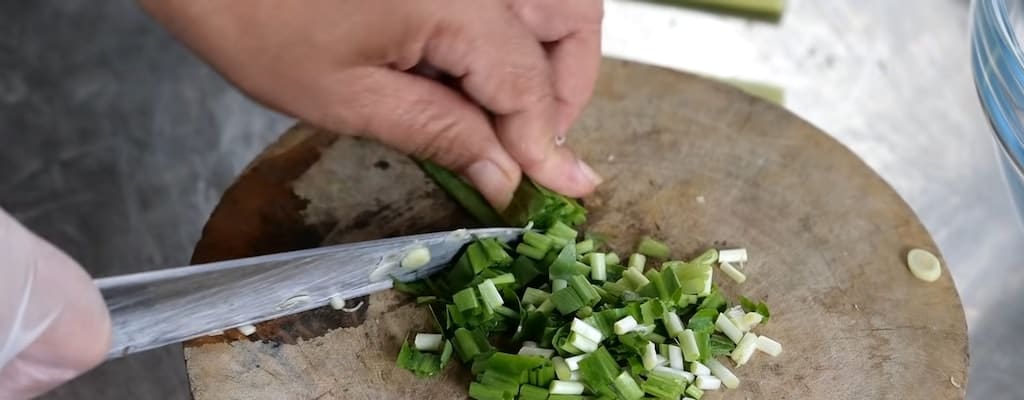curry favor: Idiom Meaning and Origin
What does ‘curry favor’ mean?
The idiom "curry favor" means to seek approval or win someone's favor by flattering or doing special favors for them. It originates from the act of currying horses, meaning to groom or care for them to make them more appealing or valuable. Similarly, people who "curry favor" are trying to make themselves more appealing or valuable to others.

Idiom Explorer
The idiom "kiss up to" means to flatter, praise, or show excessive admiration to someone, often in order to gain favor or win their approval. It implies insincere or obsequious behavior.
The idiom "kiss up" means to flatter or praise someone excessively in order to gain favor or advantage, usually in a sycophantic or insincere manner.
The idiom "kiss someone's ass" means to excessively flatter or show submissive behavior towards someone in order to gain their favor or approval.
The idiom "kiss arse" means to obsequiously flatter or grovel in order to gain favor or advantage, often by being excessively complimentary or subservient towards someone in a position of power or authority.
The idiom "horsetrading" refers to the practice of negotiating or bargaining in a shrewd or calculated manner, often involving give-and-take, compromise, and strategic maneuvering to achieve a desired outcome.
The idiom "horsetrade" means to bargain or negotiate, especially in a shrewd or calculating manner, in order to achieve a desired outcome. It is often used in the context of making deals or compromises, where both parties seek to gain an advantage.
The idiom "horses for courses" means that different people or things are suited to different tasks or situations.
The idiom "have one's way" means to get what one wants or to have things done according to one's own preference, often by exerting control or influence over others.
The idiom "grease someone's palm" means to give or offer someone a bribe or money in order to gain favor, influence or illicitly expedite a desired outcome.
This idiom means to change one's opinion or support in order to align with the majority, often due to perceived benefits or social pressure.
The Hidden Agenda
The idiom *give curry* is closely related to *curry favor*. When someone is said to *give curry*, they are essentially doing the same thing as currying favor. They are seeking to ingratiate themselves or seek attention from someone in a calculated or self-serving manner. The only difference is the phrasing used, but the meaning and underlying motives are the same.
Another related idiom is *good graces*. When someone is in someone else's *good graces*, it means that they have managed to gain favor or approval from that person. This is similar to the concept of *currying favor*, as both idioms involve seeking positive regard or approval from someone, often through flattery or other means.
A similar phrase is *brownie point*. When someone is said to be earning *brownie points*, it means that they are doing something to gain favor or approval from someone else. This can involve going out of their way to please or impress someone, often with the hope of benefiting from that person's favor in the future.
*do me a favour* is another idiom that is related to *curry favor*. When someone asks another person to *do them a favour*, they are essentially asking for their help or support in a specific matter. This can be seen as a subtle way of seeking someone's favor, as the person asking for the favour may hope that by doing them a favour, the other person will view them in a more positive light.
One more related idiom is *kiss up to*. When someone is said to be *kissing up to* someone else, it means that they are seeking to gain favor or approval from that person by behaving in an overly flattering or subservient manner. This idiom conveys the same idea as *currying favor* - the person engaging in such behavior is seeking to win someone's favor by being insincere or manipulative.
Overall, these related idioms highlight the various ways in which people seek to gain favor or approval from others. Whether it's through flattery, gifts, or other means, these idioms reflect the human desire to be liked, accepted, or rewarded in some way. However, it's important to recognize that these tactics can often be seen as insincere or manipulative, and may not lead to genuine respect or admiration from others.
Example usage
Examples of how the idiom "curry favor" can be used in sentences:
- She tried to curry favor with her boss by always volunteering for extra assignments.
- In order to curry favor with the judges, the contestant complimented their taste and style.
- He hoped to curry favor with his in-laws by cooking their favorite meal.
More "Flattery" idioms



